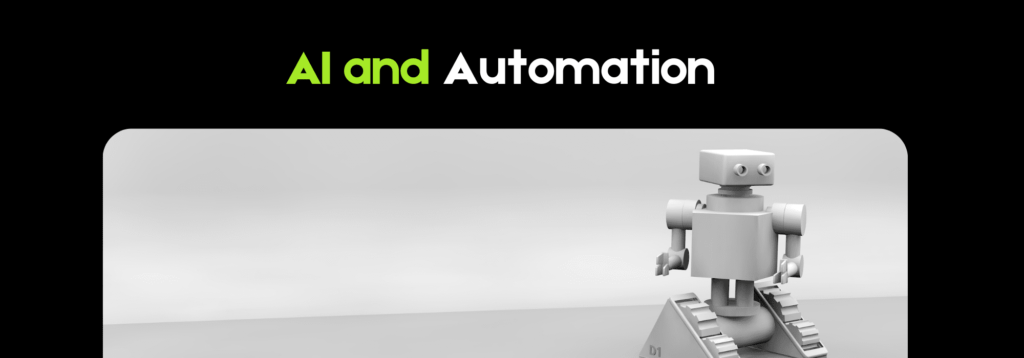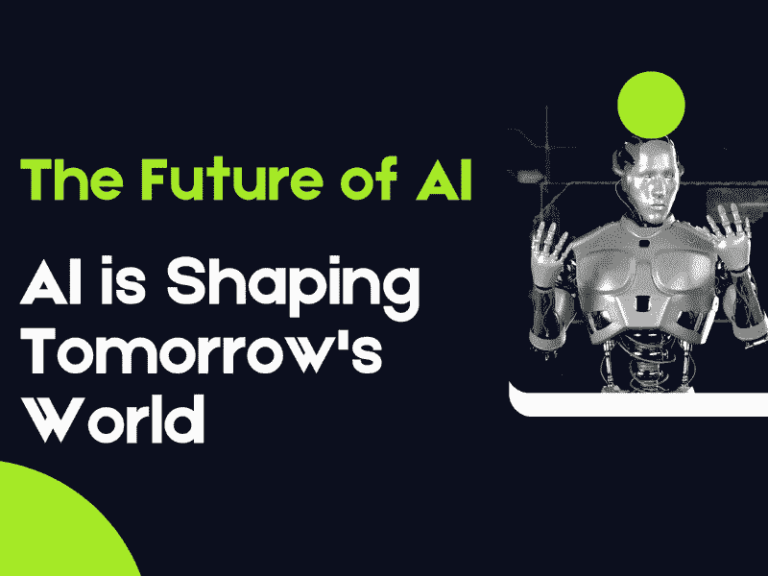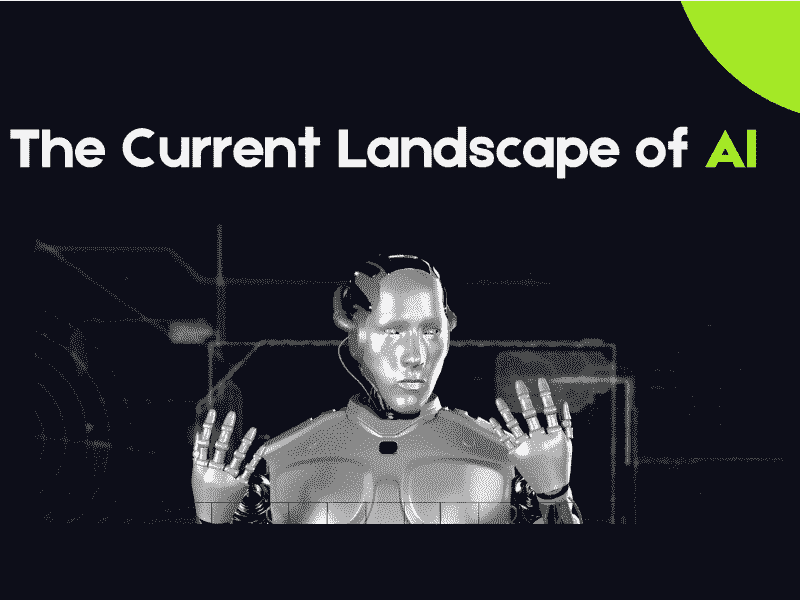Table of Contents
AI and the Future
AI and the Future: The fast growth of Artificial Intelligence (AI) is changing the way we live, work, and engage with technology. From smart assistants like Siri and Alexa to AI-driven Machine Learning and automation, these technologies are likely to transform businesses globally. AI’s effect will reach beyond business, medical care, educational institutions, and everyday life, causing outstanding change in the coming years.
This examination covers the important AI themes for 2024 and beyond, presenting the newest advancements and addressing the moral difficulties that accompany AI progress. As AI keeps developing, its ability to alter the future will offer both exciting possibilities and major challenges .
The Current Landscape of AI
Artificial intelligence is transforming sectors including healthcare, banking, and retail, improving efficiency and operations. AI-powered solutions, like as Chatbots and Ai Automation, boost satisfaction and simplify processes. In healthcare, AI assists in early disease identification and individualized therapies, while in finance, it increases the identification of fraud and handling risks, revolutionizing how organizations function.
AI is revolutionizing education with personalized instruction via adaptable systems that modify lessons to students’ requirements. Its insights based on data are changing how organizations and sector’s function, boosting productivity and outcomes.
Key Emerging AI Trends
As AI continues to develop, several emerging trends are set to shape its future impact on society and business.
AI and Automation

AI-powered automation is one of the most significant developments on the horizon. Businesses are using AI to automate repetitive tasks, streamline processes, and reduce human error. From manufacturing to logistics, automation with AI is enhancing productivity and efficiency across sectors. In 2024, this trend is expected to intensify, with AI taking on more sophisticated roles in areas like customer service, accounting, and supply chain management.
AI-Driven Cybersecurity

As cyber threats become more sophisticated, AI in cybersecurity is becoming increasingly essential. AI algorithms can analyze patterns in vast datasets to detect and prevent cyber-attacks before they occur. The use of machine learning in cybersecurity enables systems to learn from past attacks and continuously improve their defense mechanisms. By 2024, AI-driven cybersecurity solutions will become a critical part of business infrastructure, ensuring that sensitive data remains secure.
Ethics and AI Governance
With the growing influence of AI, ethical concerns are also gaining attention. Issues such as AI bias, data privacy, and transparency are at the forefront of discussions about the responsible use of AI. Governments and companies are now focusing on creating ethical frameworks to guide AI development. In the future, we can expect to see more regulations and standards in place to ensure that AI technologies are used in ways that benefit society without compromising individual rights.
AI in Healthcare Innovation
AI’s role in healthcare innovation will continue to grow, particularly in diagnostics, treatment planning, and drug discovery. AI in healthcare allows for faster, more accurate analyses of medical data, leading to more precise diagnoses and treatment plans. This could lead to breakthroughs in chronic disease management, reducing hospitalizations, and improving patient care quality. Deep learning and neural networks are playing an increasingly important role in advancing AI capabilities in healthcare.
Challenges Facing AI and the Future
While the benefits of AI are undeniable, there are several challenges that could hinder its future growth.
Data Privacy and Security


As AI becomes more integrated into business operations and personal devices, concerns over data privacy and security intensify. AI systems require vast amounts of data to function effectively, and this data can be vulnerable to breaches or misuse. Companies need to implement robust data protection measures to prevent sensitive information from being exposed.
Job Displacement

One of the most hotly debated topics surrounding AI is the potential displacement of human jobs. As AI and automation continue to advance, tasks that were once performed by humans are being taken over by machines. While this increases productivity, it also raises concerns about the future of employment in certain sectors. However, AI also creates opportunities for new jobs in AI development, maintenance, and ethical governance.
AI Bias and Ethical Concerns
AI systems are only as good as the data they are trained on. If AI is trained on biased or incomplete data, it can lead to biased decision-making. For example, facial recognition technologies have been criticized for having higher error rates for people of color, raising concerns about fairness and equality. Addressing these ethical issues will be crucial for the responsible development of AI and the Future.
Conclusion
Artificial intelligence (AI) is changing industries, giving new possibilities while facing challenges like ethics and job loss. Collaboration between AI and human intelligence will be crucial to ensure responsible and beneficial use. As we move forward, it’s up to us to shape AI and the Future for the betterment of society.
FAQS
What is the future of AI (AI and the Future)?
AI will reshape sectors with automation, healthcare innovations, and enhanced cybersecurity. Solving ethical challenges and encouraging human-AI cooperation will be crucial for discovering the full potential of AI.
What are the challenges facing AI and the Future?
Security of data, job displacement, and AI bias are key challenges. While AI offers immense potential, solving ethical concerns and advancing general artificial intelligence abilities remain significant challenges.
What are the key emerging AI trends?
Automating tasks with AI is enhancing productivity, while AI in cybersecurity is critical for threat prevention. Moral questions like AI bias and privacy are gaining popularity, with generative algorithms like GPT driving content creation limits.
What is the current landscape of Artificial Intelligence (AI)?
AI is rapidly changing industries like healthcare, finance, and education with machine learning, NLP, and robotics. For example, artificial intelligence improves medical imaging and fraud detection, improving efficiency and results across sectors.




Pingback: 5 Proven Ways AI In Healthcare - Pakterest